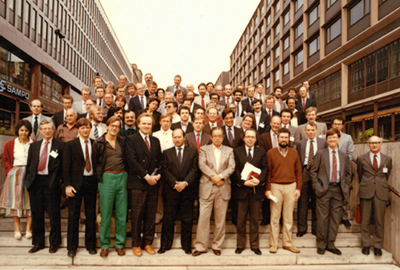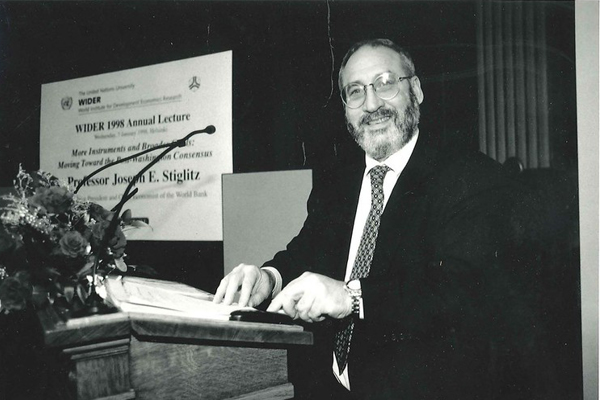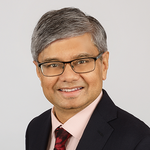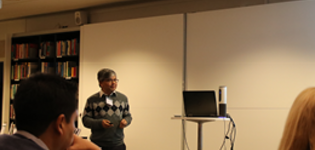Blog
UNU-WIDER at 35
Letter from the Director
2020 promised to be a big year for UNU-WIDER, with the celebration of our 35th anniversary, the 45th birthday of UNU, and 75 years of the UN. But as the year began, our focus quickly shifted away from celebrations and towards the more pressing concerns of an unprecedented global pandemic.
The moment for research
The COVID-19 pandemic has shaken the world to its core, with effects rippling out into every crevice of our daily lives. For UNU-WIDER it meant changing the way we work, ensuring staff could work remotely and safely, cancelling our annual development conference, and moving our meetings and seminars online. The bigger shift however was reorienting our research focus to the potential socioeconomic impacts of the pandemic in the Global South.
This was especially important given the context of the situation, which shone a light on just how important research is to the world’s ability to respond. Coming into COVID-19, little was known. Governments flailed about, trying to figure their way through as best they could. Without research to guide them, the paths chosen have been rocky. These weak responses have exposed further the extent of the lack of support for workers in the informal sector and the insufficiency and gaps in social insurance and protection programmes in the Global South. And, as we learned, COVID-19 poses a significant risk to the progress that has been made on gender equality, workforce participation, education, global poverty, and more.
A long history of leading and steering research for change
For the last 35 years UNU-WIDER has focused on the most pressing concerns for the most vulnerable people. Beyond research, UNU-WIDER has always been an advocate for something of a research-policy nexus, with partnerships, quality research and capacity building to ensure our research reaches policy makers and equips them to make informed policy changes.

From addressing famines to responding to the global shocks of the mid-1970-80s, UNU-WIDER has been there. During the macroeconomic crises of the 1980s, without sufficient knowledge on developing economies, hasty policy ‘solutions’ that relied too much on orthodoxy created further damage and ushered in the infamous Lost Decade for global development. UNU-WIDER’s detailed case studies covering sixteen countries in the Global South created new knowledge on how developing countries can better weather balance of payments crises. This research was instrumental to the global paradigm shift that challenged one-size-fits-all structural adjustment programmes and pushed the IMF and the World Bank to be more diagnostic in their crisis response.

This early work established UNU-WIDER as a somewhat heterodox voice in development economics for its insistence on taking a wider perspective and, as an advocate for informed policy making. The institute has oriented itself to being relevant to, and part of, policy makers’ agendas in the Global South. Through our research we have continuously focused on creating knowledge, and building capacities, for positive and sustainable change.
Over the last three decades, as the models and goals of development economics changed and evolved, UNU-WIDER has been there. We have been part of developing new ways to measure development, such as the human capabilities approach, which challenged the conventional approach to measuring human welfare purely in monetary terms, and led to the creation of alternate measures of well-being such as the Human Development Index of UNDP. We helped to expose the dramatic extent of global wealth inequality and continue to host the world’s largest database on income inequality.
First responders
Today we are faced with a health and economic crisis that again leaves developing countries, that lack health infrastructure and rely on large informal sectors, disadvantaged. We again find ourselves in a time that calls for swift global policy responses. Thankfully, in the years since UNU-WIDER’s establishment and first research projects, the knowledge we have created, and the lessons we have learned about the synergies of research and policy can lead us to better outcomes. We are working hard to respond and provide data and research as quickly as possible, including collecting real-time data about the experiences of people around the world, measuring the impacts of lockdowns and restrictions on social interactions, trust in governments and economic effects.
What we must overcome today is the very real threat of another lost decade for development. The goal is to reject the possibility of stagnation or backsliding on progress because of the impacts of COVID-19. Thus, we are committed to supporting as best we can, research and policy analysis to minimize the economic shocks and any entrenchment of negative socioeconomic impacts this pandemic brings.
Given the impacts on the economic activity of people, and the economic structures around the world, COVID-19 poses a huge threat to the process of structural change. However, relatively little is understood about the possible routes to structural change. Through just one of our projects, ‘The developers dilemma’, we are filling this knowledge gap to avoid mismanagement of the process. How countries manage the potential trade-offs between structural change and inclusive growth is essential to building back better after COVID-19. I envisage the research from this project will be an essential part of that process and will join our collection of work that breaks new ground for future research and global development.
Seeing through the WIDERAngle
Over the last three issues of 2020, the WIDERAngle will reflect on some of the greatest achievements of UNU-WIDER over the last 35 years and how we see our work creating change in the future. We will be sharing these reflections in our blog and newsletter, and on our social media channels. I hope you will join me in taking some moments to acknowledge the important impact our research has had and continues to produce.
The views expressed in this piece are those of the author(s), and do not necessarily reflect the views of the Institute or the United Nations University, nor the programme/project donors.
 Join the network
Join the network




